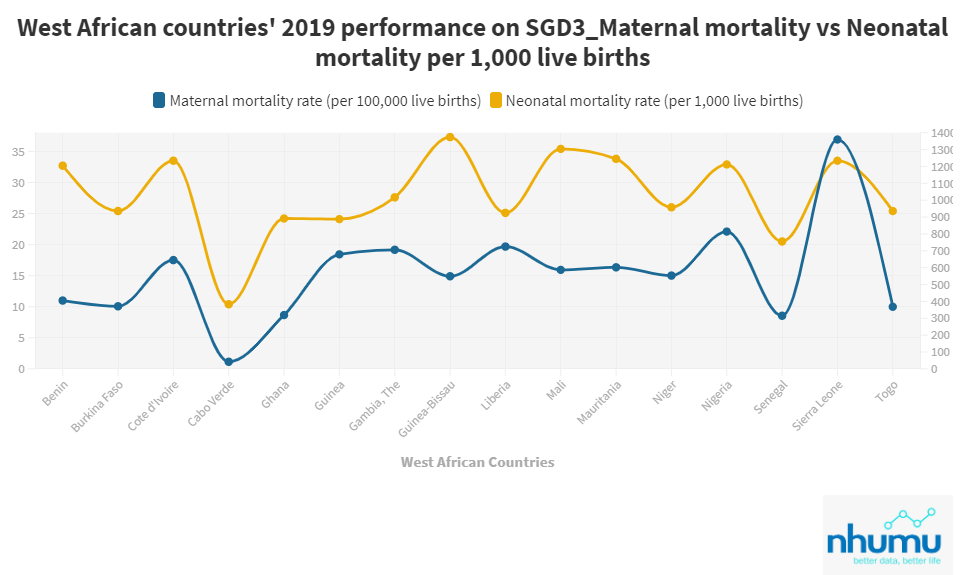Ghana a long way from meeting SDG target on neonatal mortality
Lauded as one Africa’s fastest growing economies and promising countries, Ghana however has to get warnings.
Women and children in the West African country must get serious attention.
What is the issue?
Economic growth and countries’ ability to attract foreign investments are often viewed as good indications to rate countries. If these two variables are important for a good profiling, they don’t focus on social challenges encountered by populations.
Signatory of the UN Sustainable Development of Goals (SDGs) 2030 agenda, Ghana like most countries in Africa is dragging foot in the implement of the 17 goals.
The Ghanaian government on goal 3; Good Health & Well-being, has subscribed to reducing neonatal mortality to at least as low as 12 deaths per 1000 live births by 2030; the deadline of the 17 goals.

The 2019 Global Index Results provided by https://www.sdgindex.org/ reveals Ghana last year registered last year 24.20 neonatal deaths per 1000 live births; doubling therefore the target.
Neonatal Mortality
Neonatal mortality is defined as death within the first 28 days of life. The neonatal period according to UNICEF, the UN branch for children, is the most vulnerable time for a child’s survival. 4 million children aged under 1 died in 2019 according to the UN and 1.8 million of the deaths occurred in sub-Saharan Africa.
The deaths are largely caused by premature birth, low birthweight, birth defects, problems in pregnancy and malnourishment of the children post their birth.
Action to take
To meet the target, companies and civil society groups must help provide skilled health professionals to manage and treat the births and the new mothers, promote breastfeeding from birth until six month of age. Pregnant women should be provided midwife-led care provided by professional midwives, educated and regulated to internationals standards.
Copyright © 2020 Nhumu. All Rights Reserved.



